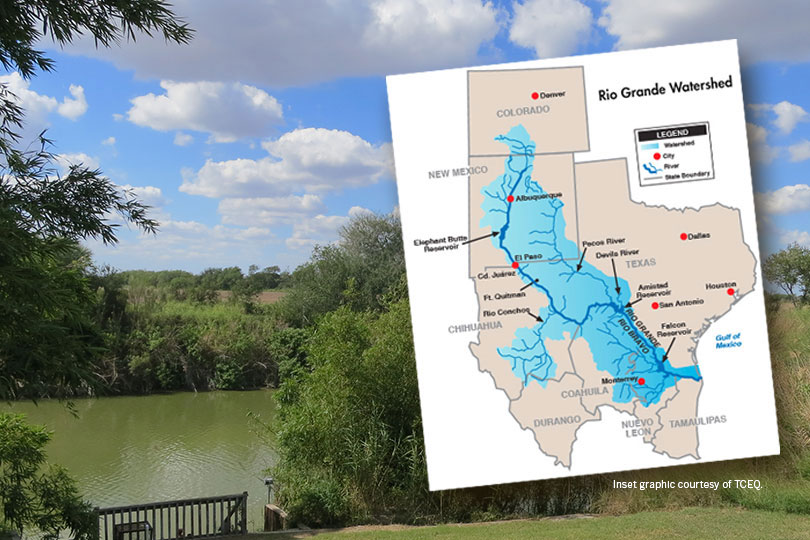By Jessica Domel
Multimedia Reporter
A decades-old water dispute between Texas, New Mexico and Colorado will be heard before the Supreme Court of the United States (SCOTUS) Monday, Jan. 8.
In 2014, Texas filed a complaint against New Mexico alleging the state allowed diversions of surface water and the pumping of ground water intended for Texas’ use under the 1939 Rio Grande Compact.
The compact between Colorado, New Mexico and Texas was created to protect the integrity and operation of the Rio Grande Project, which ensures the shared rights of the Rio Grande between the three states.
The compact requires Colorado to deliver water from the river at the Colorado-New Mexico state line in preset quantities determined by river flow, which is measured by stations in several locations.
New Mexico is obligated to deliver water to the Elephant Butte Reservoir for Texas’ use based on river flow.
In the complaint, Texas alleges actions by New Mexico caused “grave and irreparable injury to Texas.”
“The State of New Mexico has allowed and authorized the diversion, extraction and use in New Mexico of Rio Grande Project water that has been allocated to Texas,” Texas’ complaint stated. “These diversions, extractions and use include Rio Grande Project return flows and other underground water that is hydrologically connected to the Rio Grande, and to which the United States has superior rights, including the right to deliver that water to Texas.”
New Mexico alleges it did not violate the Rio Grande Compact because the agreement does not require the state to prevent development downstream of Elephant Butte.
The agreement, they say, just requires New Mexico to deliver water to Elephant Butte for Texas’ use.
In a brief, Texas reports it and New Mexico tried to resolve the disagreement but were unable to come to any conclusion due to fundamental differences in interpretation of the Rio Grande Compact.
“The Rio Grande is the primary, at some places the only, source of supply for agricultural lands within Texas that are the intended beneficiaries of Texas’ allocation of Rio Grande water,” Texas’ complaint stated. “In addition, the Rio Grande Project water supply constitutes, on average, 50 percent of the annual water supply for the city of El Paso.”
New Mexico filed a motion to dismiss the case, but the court dismissed it.
In 2014, a special master, A. Gregory Grimsal of Louisiana, was assigned to the case to look into the claim.
The hearing Monday in the original jurisdiction dispute will focus on exceptions filed by the United States, which intervened in the case, and New Mexico to the master’s first interim report.
According to the court, the justices will hear an hour of oral arguments on the case Monday. It will also hear a dispute between Florida and Georgia.
Texas Farm Bureau is following the case and will provide an update when additional information is available.

